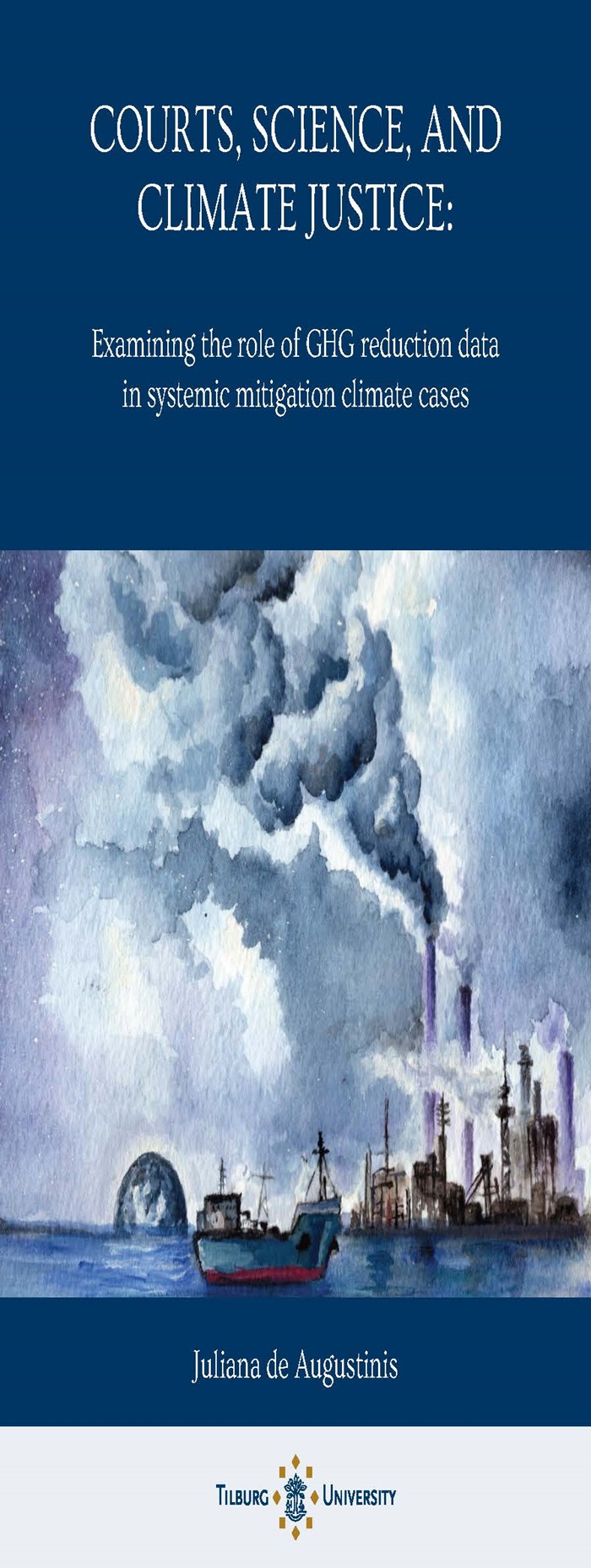
Climate litigation has emerged as one of the most visible arenas where law and science meet. This dissertation examines how courts worldwide engage with scientific evidence regarding the greenhouse gas (GHG) reductions necessary to address the climate crisis, particularly in cases where governments are challenged for failing to adopt sufficient mitigation measures. Inspired by the landmark Urgenda judgment in the Netherlands, scholars and practitioners often emphasise the potential of scientific assessments, such as IPCC reports, to support ambitious judicial orders. Yet until now, there has been no systematic comparative analysis of how judges actually deal with such evidence. This study of Juliana de Augustinis addresses that gap. The research examines 49 rulings issued between 2015 and 2022 in systemic mitigation cases across 14 jurisdictions (including Europe, North America, Latin America, South Asia, and Oceania). It combines systematic content analysis, statistical testing, and qualitative analysis of judicial reasoning. Additional analysis of rulings from 2023-2024 places these findings in the context of recent legal developments, such as the Klimaseniorinnen decision of the European Court of Human Rights. The findings reveal a nuanced picture that challenges the common ‘juristocracy’ claim that decisions on GHG reductions are shifting from the political sphere to the courtroom. On the one hand, judicial engagement with science was limited in the sample. In particular, almost half of the decisions did not refer to mitigation science, and a limited number of judgments utilised the assistance of experts or considered scientific reports to assess the credibility, uncertainty, or trustworthiness of the data in any detail. The deeper analysis of arguments suggests that while courts frequently acknowledged the urgency of climate change and the authority of scientific reports, they often invoked the separation of powers as a reason not to translate science into enforceable obligations in Europe and North America. At the same time, the findings highlight that scientific evidence has real potential to shape favourable judicial decisions, even if institutional concerns about the separation of powers often limit its impact. In the relatively small number of cases where courts did impose stricter emission reductions, scientific evidence on mitigation pathways was almost always central to judicial reasoning. Moreover, the statistical analysis shows that references to such evidence were associated with a higher likelihood of favourable outcomes for petitioners, particularly in North America. Taken together, the findings show that courts remain cautious: science matters, but judicial reliance on GHG mitigation evidence is constrained by institutional boundaries. Still, recent international and domestic rulings may signal a shift toward more integrated approaches, where courts explore collaborative remedies and structured forms of evidence evaluation. By showing both the limits and the potential of judicial engagement with climate science, the dissertation invites further reflection on how courts can rely on scientific insights and contribute to climate governance while respecting democratic boundaries. It calls for research, particularly in underrepresented regions, and for greater attention to mechanisms that allow courts to engage with expert knowledge while respecting democratic boundaries.
De Augustinis defended her thesis wednesday, October 1st at Tilburg University. The dissertation was supervised by prof. Rob van Gestel and prof. Jurgen de Poorter.
Juliana de Augustinis
Courts, Science, and Climate Justice: Examining the Role of GHG Reduction Data in Systemic Mitigation Climate Cases
The dissertation will be published in revised form as a book by Edward Elgar Publishing under the working title Science on Trial in Climate Litigation: The Role of Empirical Data and Scientific Evidence in Mitigation Disputes (forthcoming, 2026).

